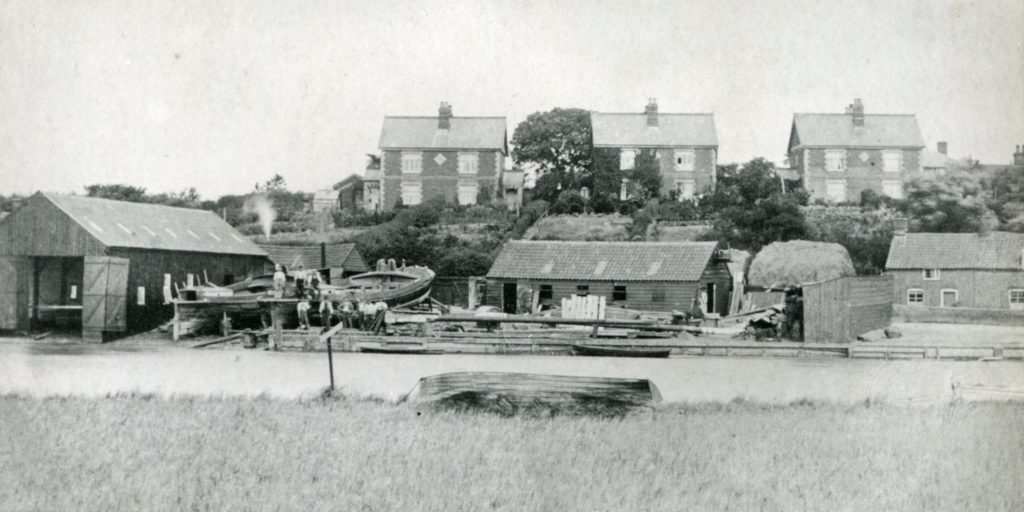Maud’s Early History
Maud was built in 1899 by Halls of Reedham, whose premises were adjacent to the yard now occupied by Sanderson Marine Craft Ltd. Halls built many fine, fast wherries including the legendary Fawn which won many races, skippered by “Ophir” Powley. Other products of the firm were the pleasure wherries Hathor and Solace, both still regularly sailing on the Broads.
Maud was built for Walter Christmas Bunn of 252 Southtown Road, Great Yarmouth. He already owned her sister craft Dora and later, in 1902, commissioned another – the Shamrock. The latter was to be the last trading wherry to be built by Halls. Walter Bunn had a long and successful career with Jewsons, builders’ merchants in Great Yarmouth, and used his private fleet of wherries to carry timber from their Great Yarmouth branch to their Norwich premises.
In her early days Maud was skippered by members of the Powley family, and carried timber and general cargoes for other firms as well as Jewsons.
In 1911 the three sister vessels (Dora, Maud and Shamrock) were sold to the Yare & Waveney Lighter Company of Key Street, Norwich. Maud was then skippered variously by Tom Wright, Tom Bates and “Nolly” Farrow, carrying general cargoes. The manager of this firm, Henry Newhouse, was evidently forward looking and began to replace his wherries with large steel lighters pulled by tugs. This policy resulted in the sale of Maud and her sisters to J.S. Hobrough of Norwich in 1918. Hobrough was a river transport contractor and civil engineer, and he dismasted Maud and used her for carrying mud in connection with dredging operations. She would be loaded with 45 tons of mud by a grab dredger, and would then be towed or quanted to the unloading site, where the mud would be removed and dumped by two men using shovels and wheelbarrows! For this hard and unpleasant job the pay was £1 per trip between the two of them.
For most of Hobrough’s ownership Maud was skippered by “Nolly” Farrow junior, who had served with his father “Nolly” senior under sail in Maud for a season while carrying clinker from Norwich Gas Works to Coldham Hall for Newhouse, probably in 1917. Most wherrymen had a nickname by which they would normally be known. Such a nickname might be given to an individual, or might be inherited as in the case of “Nolly”. Young “Nolly” left school in 1919 and skippered Maud for 24 years on and off, also working in Jessie and Bell, which carried coal tar in tanks.
Read about Maud in the press.
Read about Maud’s construction and rig.

